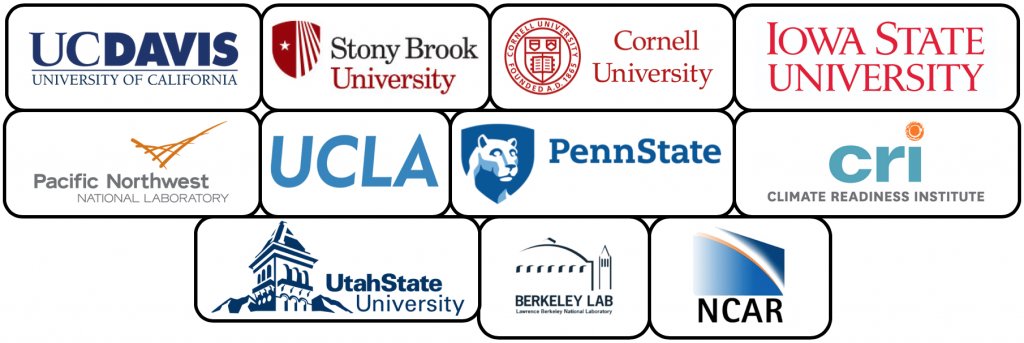Overview
The production of actionable climate science relies on effective communication of regional climate information and its associated uncertainties across sectors. To be of value beyond academic circles, climate data must be sufficiently credible (i.e., physically grounded), understandable (communicated in the vocabulary of the decision-makers), and useful for the particular decisions that need to be made. Comprehensive assessment of both dynamical and statistical climate models adds substantial value to their outputs, particularly when the evaluation criteria are the product of a two-way dialogue between scientists and end-users. Substantial progress has now been made on developing comprehensive frameworks for climate data assessment that incorporate process-oriented, feature-specific, and use-inspired metrics. These efforts have been particularly advanced over the continental U.S. (CONUS) under both the Department of Energy Hyperion and FACETS projects. Our proposal for the joint continuation of these efforts will extend these past projects so as to further (1) advance our understanding of processes at the climate-water-energy-land-decision interface, and (2) fundamentally improve our ability to perform credible climate modeling of particular regions. Specifically, the HyperFACETS project aims to address these questions:
How much can we trust given climate information for actionable climate science? And how can we ensure its saliency?
For an overview of our engagement activities under Project Hyperion check out our executive summary on Developing Use-Inspired Climate Science for Water Management.
To learn more, check out our research activities.
With representation from these institutions:


